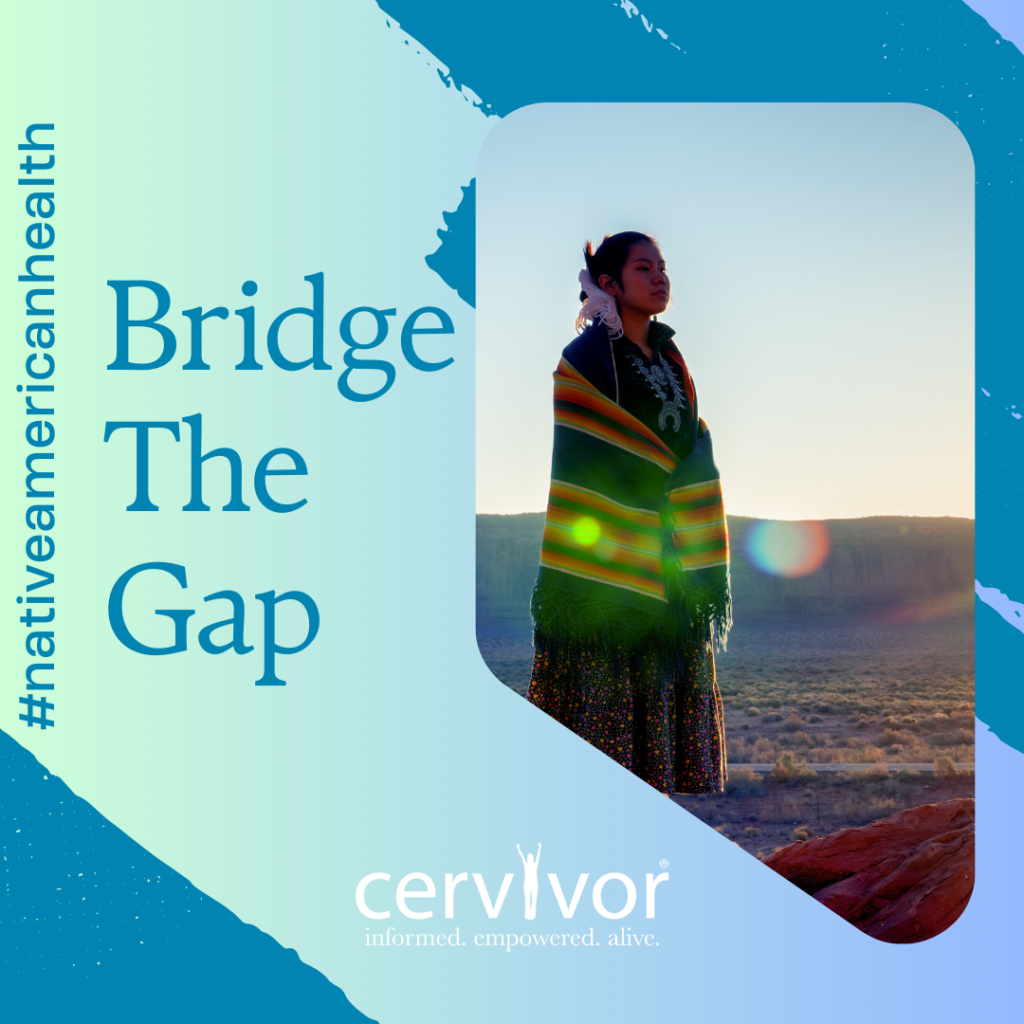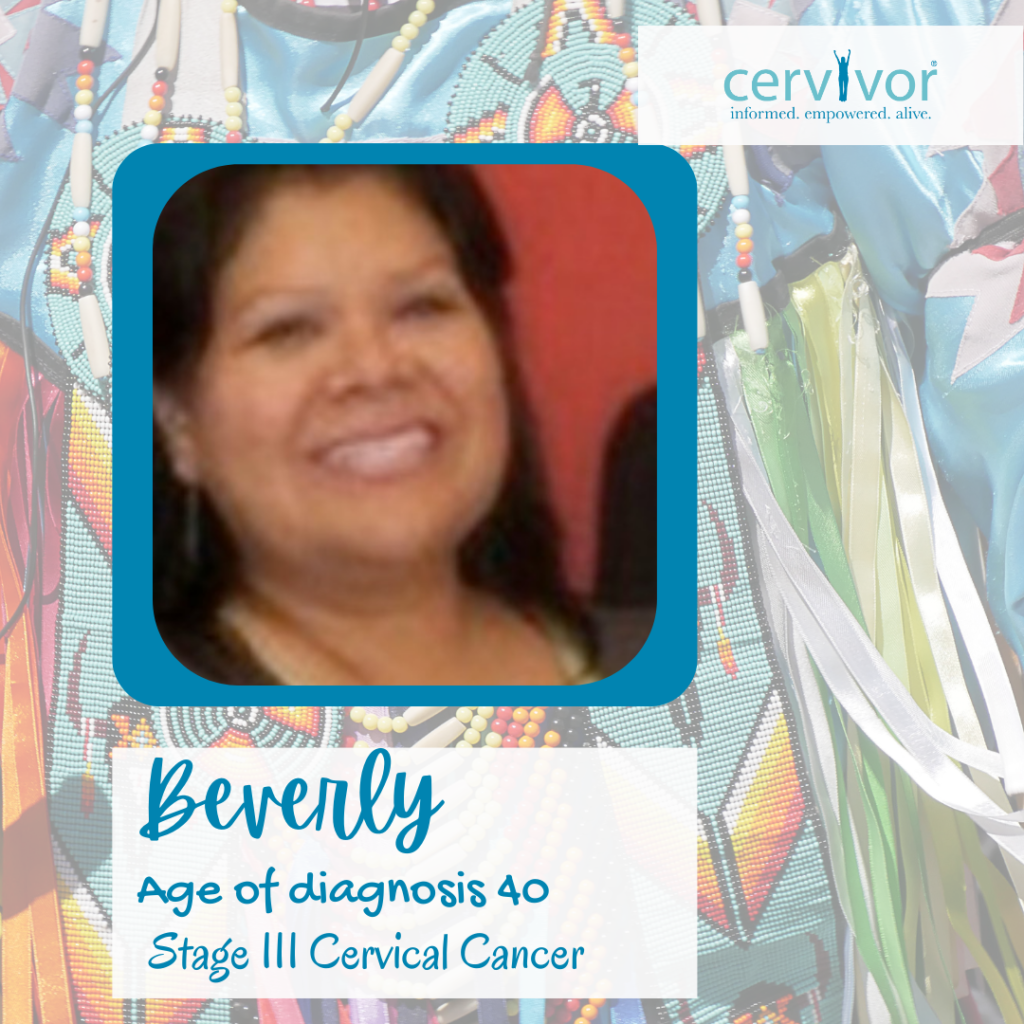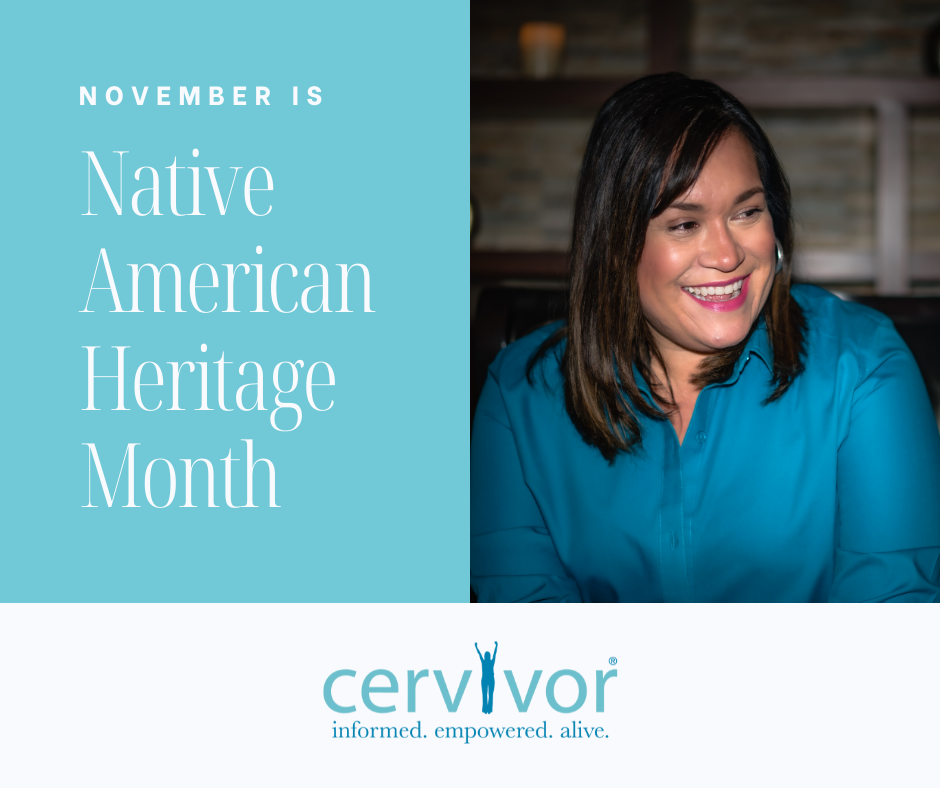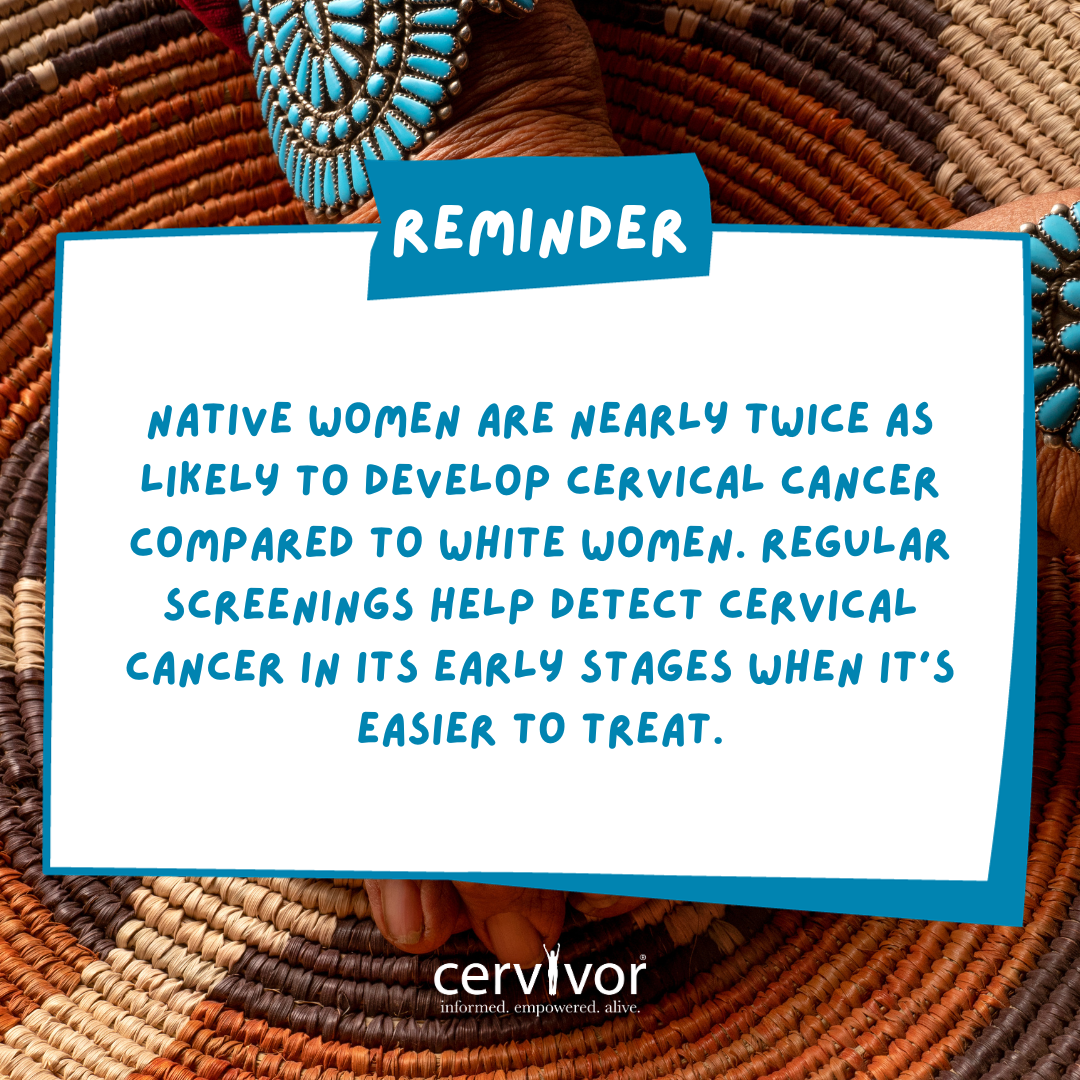November is not only a time for Thanksgiving, it is also National Native American Heritage Month. Let’s come together to celebrate the rich cultures and contributions of Native Americans while shedding light on the importance of cervical health and the disparities surrounding cervical cancer diagnosis in Native American communities.
Cervical cancer is a disease that impacts individuals of all backgrounds, including those in the Native American community. Cervical cancer disproportionately affects underserved and marginalized populations, including Native American women. These disparities are often due to limited access to healthcare, educational resources, and cultural barriers. Native American communities, like many others, face challenges in cervical cancer prevention and early detection which can detect abnormal changes in the cervix early, when they are most treatable.
Beverly is a Cervivor community member who is a part of the Easter Band of Cherokee Indians. As we acknowledge National Native American Heritage Month we take a look at Beverly’s Cervivor story.


“When I learned at age 40 that I had stage IIIB cervical cancer, it sounded like a death sentence. I remember thinking “My children are too young to be left alone!”
Immediately, I went into a series of traditional ceremonies with my community. During sweats, I pictured the tumor melting. My children sang healing songs. But I didn’t pray for instant healing—I prayed for strength and clarity. At the sun dance, where prayers were said for me, I received items like eagle plumes and prayer ties. The water ceremony was also very powerful—and the hospital showed respect for it. I can never forget the amazing change the ceremony brought to the lymph node surgery I had less than an hour later. My traditions are everything to me, and they were what I held onto during this time.”


Kristine, a Cervivor community member representing the Navajo Zuni Clan shares:
“When I was diagnosed with cervical cancer I had to lean on my heritage for my source of strength. It was a great reminder of the those that came before me and what it meant to have their blood run through mine. Navajo women are the matriarch and we (all Navajo’s) introduce ourselves by clan which identifies and defines relationships between individuals and families. When you meet someone with one or more of your same clan, you become related by clan. You can also tell a region by someone’s clan.
According to the American Indian Cancer Foundation, American Indian and Alaska Native women are nearly twice as likely to develop cervical cancer compared to white women and four times as likely to die from it. Those are statistics I would like to help change. Cervical cancer is preventable. I share my story to remind you to be proactive with your health. Make those uncomfortable gynecologist/prevention visits and ask about the HPV vaccination for your child(ren). ”
Through the work with Cervivor, Inc. and community partner organizations, we can reduce and close the disparity gap:
- Education: Promote awareness about cervical cancer and its risk factors within Native American communities. Partner with local health organizations, community leaders, and tribal authorities to host workshops, webinars, or informational sessions and include patients and survivors to share their stories and experiences.
- Access to Care: Advocate for improved access to healthcare services, including cervical cancer screening and vaccination, in underserved areas with high Native American populations.
- Cultural Sensitivity: Tailor educational campaigns to respect and acknowledge the cultural beliefs and practices of Native American communities. Building trust and understanding is essential for effective outreach.
- Support and Resources: Collaborate with healthcare providers and organizations to ensure that Native American women have access to affordable screenings and follow-up care, if necessary.
- Encourage Vaccination: Promote HPV vaccination to protect young girls and boys from the virus, ultimately reducing cervical cancer rates.
We can make a significant difference in the lives of Native American communities and all those affected by this preventable disease. Let’s honor our past while working towards a healthier future for everyone. Do you identify as Native American or Alaskan Indian? Share your Cervivor story today!